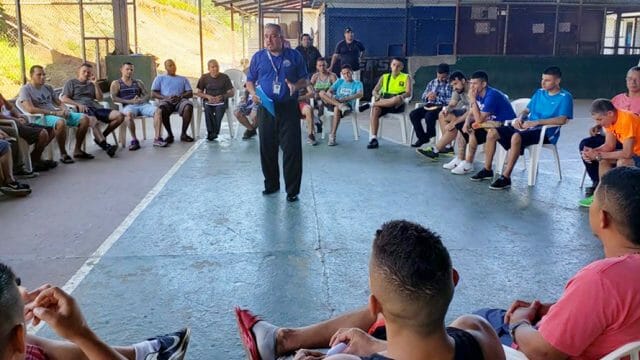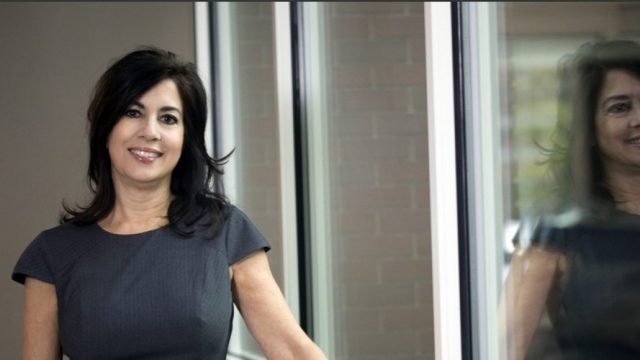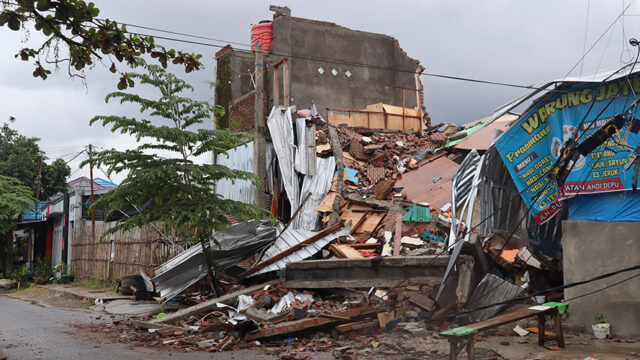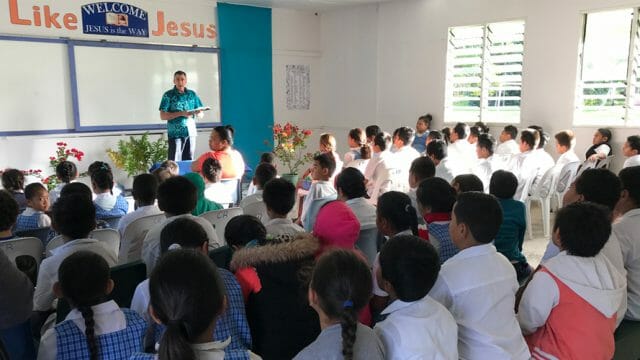A woman shares the story of her first mission trip and a first experience with Christians.

Sandy Patel has worked with Gino Wolff at the same medical office in the United States for 10 years. Every year, Patel came to expect that Wolff would go on a mission trip with Maranatha Volunteers International. And it became a tradition that when he returned, he would invite her to go.
“You should go next year,” he always said.
Every year, Patel found a reason not to go. She didn’t want to leave her young kids; she didn’t have enough time off work. “I would look for excuses,” she says.
Yet Wolff sensed a curiosity from Patel about the projects beyond just looking at travel photos. “It’s not often that I talk to people who aren’t Christian about my mission trips. But when I talked to her about it, she said, ‘Wow. I would really like to do something like that,’” Wolff remembers. “I know she’s done smaller service projects. I know she wants to try and serve and do things for other people.”
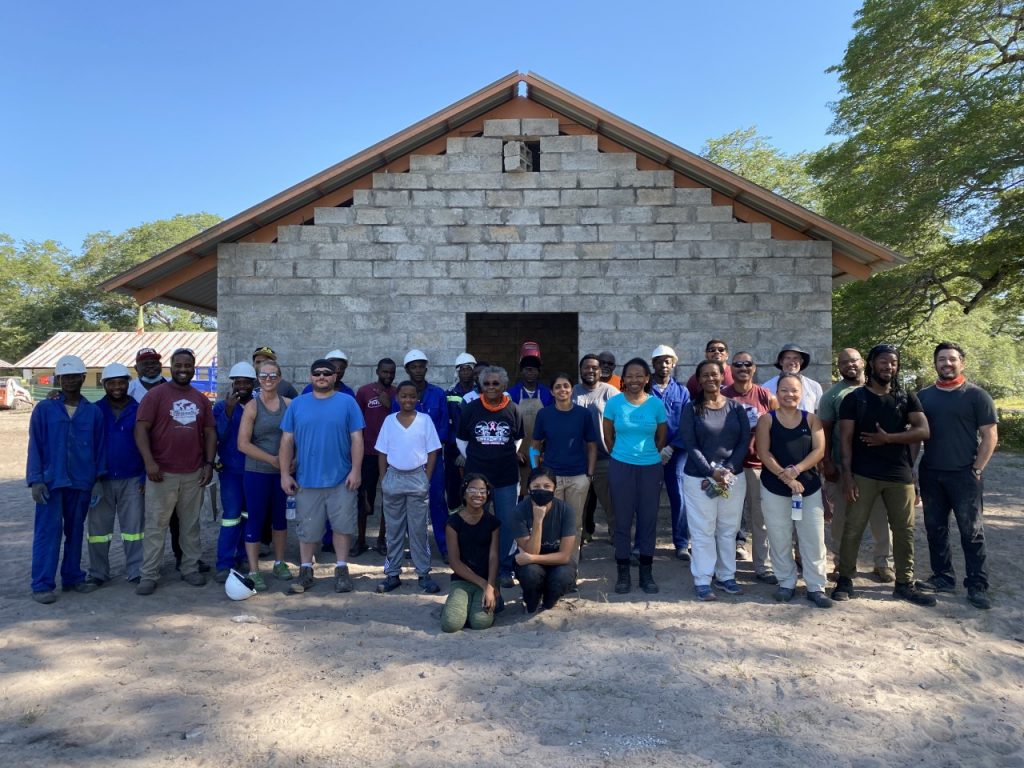
Wolff kept telling stories from the mission field and sharing photos. He even brought her a copy of The Volunteer, Maranatha’s quarterly magazine. Once, she got close to joining a mission trip to the Kajiado Adventist School and Rescue Center in Kenya, where volunteers were going to build a classroom. But that fell through. “Obviously, I found more reasons not to go,” Patel says.
The Odd Person Out
Then, last year, Wolff told her about Zambia. The project was to build classrooms at the Liumba Hill Adventist School in western Zambia. Patel still pushed back against the idea. She wasn’t afraid of travel; she and her family traveled around the world quite a bit. Rather, she was afraid of being the odd person out on the trip.
“I’m not an Adventist. I’m not even a Christian. To me, I felt very scared that I wouldn’t be accepted and welcomed — that I would be an outsider,” Patel says.
Wolff’s mission trips are coordinated through Maranatha but organized by Greg Hatch, a member of the West Houston Seventh-day Adventist Church in Texas. Around 2001, Hatch started organizing mission trips for the congregation. At the time, Wolff was a member, and in 2003, he joined one of Hatch’s trips. Since that first experience, Wolff has never looked back, not even when he moved to Atlanta, Georgia. Instead, he started recruiting local church members and friends to join Hatch’s projects. Today, the group that originated in West Houston welcomes volunteers from all over the country. Most of the participants have been on multiple mission trips together, and they are a tight-knit family. For this reason, Patel’s concerns were valid — she would likely be one of the few new people on the project. But Wolff finally convinced her to give it a try.
Patel says, “Gino told me to just put it in God’s hands and let it be. So I put it away and gave it to God and let Him show me what the right answers were.”
Unexpected Money
Patel contacted Hatch and signed up for Zambia. She wasn’t entirely sure she would go, but it was a big first step. Soon, it came time for her to confirm her participation with a US$100 deposit.
“Even at this point, I had mentioned the trip to my husband, but not to anybody else. Nobody knew that I was even considering going on that trip,” Patel says.
Then, on the very day that she received the deposit notification, Patel’s mother stopped by her house. “She gave me a hundred dollars. She told me to use it for whatever I needed. And I hadn’t even mentioned the trip to her,” Patel says. “It was not my birthday. It was not a special day. I’m an adult. She doesn’t just give me money for random reasons — she never has and hasn’t since then.”
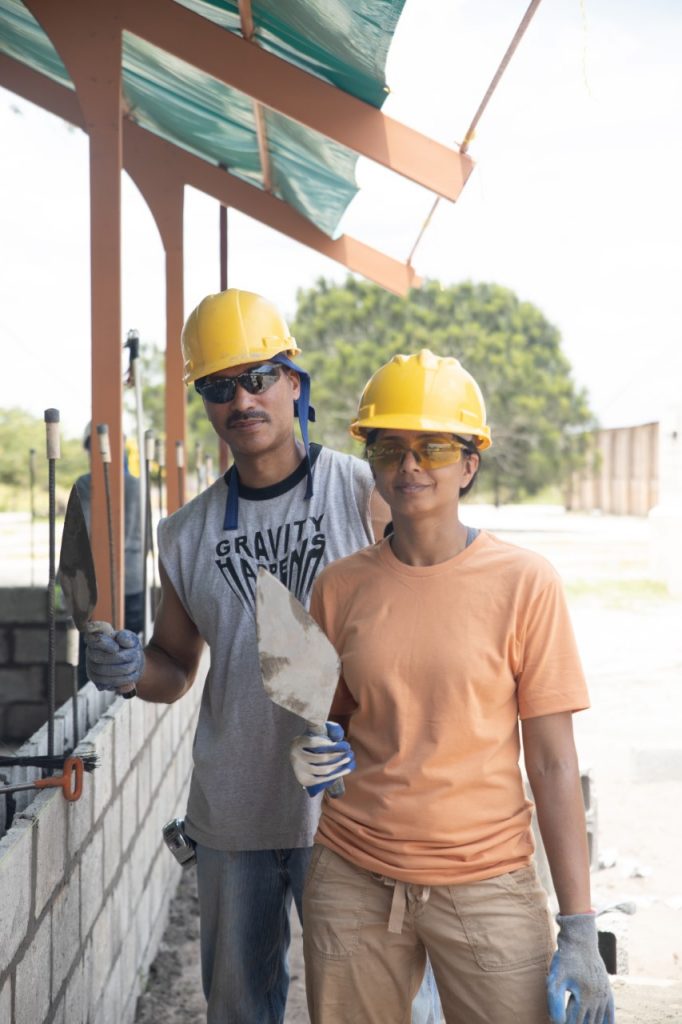
To Patel, the unexpected gift from her mother, in the exact amount required for the deposit, was a sign. She had put the decision in God’s hands, and this was the response. She was supposed to go on the trip.
From there, the signs kept coming, affirming her decision and nudging her closer and closer to her first mission trip. Until one day, Patel was in Zambia. When the volunteer bus pulled into their home base in Kalabo, about nine miles (15 kilometers) from the construction site, they were welcomed by a crowd of dancing, shouting, joyful locals.
“It just brought tears to my eyes. These people were so excited and happy to see us. They were singing and just ecstatic that we were there to help them,” Patel says. “That reception was out of this world.”
Part of a Group
That week, Patel worked on the construction site, mixing mud, hauling blocks, and making new friends. “I didn’t feel like I was looking in from the outside. I was part of the group. It was really nice.”
When it came to the daily worship, Patel was initially “worried and scared.” After all, she knew little to nothing about the Adventist faith or even Christianity. Religion was a part of her heritage, but it hadn’t been an integral part of her life. But the experience was neither alienating nor problematic; instead, she was drawn to it.
“She was very intent. We’d have our morning and evening worship, and she just seemed very intent on listening to what was being said and what was going on,” Wolff says. “Because she doesn’t know all the stories from the Bible like we do, she would listen and ask me things — ‘Hey, what is this story about?’ ”
Even the construction had a spiritual theme and testimony. One night, Wolff told the story of how God systematically whittled down the number of soldiers in Gideon’s army when they were about to face a mighty enemy. This way, when Gideon’s meager army was victorious, the success could only be attributed to the hand of God.
Wolff compared this to the volunteers’ situation. Initially, the volunteer team had started with 40 participants, but people kept canceling until the number dropped to 24, with five of them assigned to the dental clinic. That left only 19 to work on the construction site, a small number of volunteers for the project the team had accepted. The goal was to build a three-classroom structure spanning about 90 feet (about 27.5 meters) in length. Several people, including some of the block team leads, were doubtful that they would succeed because of their reduced numbers. But Gideon’s story became a motivation for the volunteers. And at the end of each day, everyone, including Patel, would stand back and observe the rising row of blocks, amazed at what had been accomplished.
“How is this even possible with the number of people we had? It just didn’t make sense how it was possible that this building was going up so quick and so fast,” Patel remembers. “It just shows that it wasn’t us. It’s all God.”
Six days later, Patel sat on the campus with her fellow volunteers to dedicate the completed building. During the ceremony, school leaders and students turned out in full, singing and dancing to celebrate their new classrooms. After the school was established in 1928, locals say, missionaries hadn’t been back to Liumba Hill for nearly a hundred years. This visit was a historical moment for the campus. Patel watched the program as tears rushed down her face, soaking her mask.
“After working for a whole week and seeing all of the progress and seeing the excitement and happiness from the people and the community … it was so overwhelming that I couldn’t control my emotions anymore,” Patel says. “When we drove away from the site for the last time, I felt so complete. I even said to Gino, ‘At this point, if we were to pack up and go home right now, I would be content.’ ”
A Changed Person
When Patel finally did go home, she returned as a changed, or rather, a changing person. Her first dive into a Christian experience has cracked open a window of new possibilities. Days after her return, Patel is ruminating on episodes from the mission trip and what she wants to do next. She often thinks back to the worships they had in Zambia, where friends shared stories from their lives and the Bible.
“The little snippets from the Bible that they would quote — it intrigued me and makes me want to know more about the stories. I’d catch myself so intrigued in listening to whatever they were doing the worship on for the day,” Patel says.
For Wolff, his goal was to introduce Patel to the mission experience in hopes that she would get a glimpse of God. “I was hoping that she would find more of God and be able to let that seed be watered more. Hopefully, this helps to open the door for her,” he says. “And it seems like it has, based on some of our conversations.”
What happens next for a woman who just got back from her first Christian mission trip? Patel isn’t entirely sure. She is still processing and doesn’t even know how to begin talking with her family about what she’s experienced. But one thing she does know is that she wants to learn more.
“Truly, the group that I went with was so welcoming and so nice,” she says. “This is what I want. This is the type of people who are Christians, and I want to be that person. I want to be with that group. I want to be like them.”
“I’m pretty sure that there are people like me who believe in God, but they don’t believe in a religion. And we’re confused. I feel like this experience has helped me and is guiding me to the right religion. And I’m very intrigued to know more about Christianity, to just learn and see if this is where I belong.”
The original version of this story appeared in issue 2, 2021, of Maranatha Volunteers International’s The Volunteer magazine.


